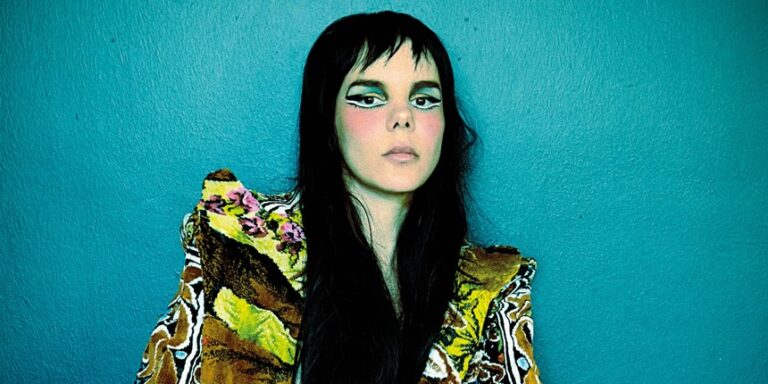Spanning the entire lower Black Sea coast, Turkey extends from Eastern Europe to Western Asia. Due to its geography, the country has always been a point of crossing, a unique territory where the West and the East meet, with cultural bridges to both sides. It’s one of those magical places where the fusion of music happens naturally. Turkish psychedelic rock emerged in the mid-60s, at the initiative of some local artists who rode the wave of British rock to combine it with the traditional music of their homeland. Originally, it was called Anatolian pop, and later became Anatolian rock, although the European press popularized it as Turkish psychedelic rock – in tune with the hippie culture that ruled the music industry.
Erkin Koray is often pointed out as the precursor of this music movement. He revolutionized the scene by electrifying the saz or bağlama – an old instrument that, until then, had always been acoustic and had only been used for Turkish folklore. Another pioneer was Cem Karaca, who became part of some key Anatolian rock bands, such as the emblematic Moğollar. The list also includes names like Barış Manço, who was also an actor and wrote many successful songs, and Selda Bağcan, one of the most influential female artists in Turkey, although her work was closer to folk music.
Influenced by the psychedelic waves of the time, these artists have come out with mind-blowing and colorful music that mixes rock and folk with traditional Turkish scales and ways of singing. Some of their gems can be heard on the vinyl mixes of Istanbul-born, London-based music curator Zag Erlat, founder of My Analog Journal. Many of these albums have been rescued and reissued, after a recording hiatus that began in the late seventies with the seizure of power by a military regime that caused the exile of many artists. Towards the 2000s, the genre gave new signs of life with underground bands like Baba Zula. The new outbreak, however, has grown since the 2010s thanks to the international imprint of names like Gaye Su Akyol and Altın Gün.
Gaye Su Akyol
Painter and anthropologist, as well as a singer, Gaye Su Akyol is an empowered voice renewing Turkish culture. Her career spans a decade of fruitful productions, with four albums and an EP. Gaye’s reimagination of Turkish psychedelic rock also includes elements of surf guitar, post-punk and electronica. Her songs make up a dream kingdom where she can take refuge in her native Istanbul. With metaphor as a resource, her lyrics address issues far from social conservatism. “My ideas are very open,” she said in an interview with the Financial Times about the censorship attempts that fell on her. “I’m a protector of human rights, woman rights, queer rights, LBGTI rights. That’s enough reason for them to hate me, but I don’t care.”
Altın Gün
Altın Gün’s story began in Amsterdam, Netherlands, in 2016, when bassist Jasper Verhulst posted an ad looking for Turkish musicians. This is how he found the two singers of the band, Merve Daşdemir and Erdinç Ecevit Yıldız, while the other members are Dutch. Their music mixes funk rhythms, wah-wah guitars and analog organs with Turkish folk singing and harmonies. With their debut album, 2018’s On, some came to point them as the resurrection of Anatolian rock. With 2019’s Gece, they became a global music reference and received a Grammy nomination. For their third album, 2021’s Yol, they were inspired by ‘80s synthpop. And for their most recent release, 2023’s Aşk, they played with electronica and disco music.
Bubituzak
It would be a mistake to take this tour without mentioning the guitarist and producer Ali Güçlü Şimşek. Born in Istanbul 40 years ago, he grew up in the city of Bursa and fell in love with the guitar at the age of 12. Still a teenager, while studying in Ankara, he formed the alternative rock band Çilekeş, active between 2002 and 2011, with whom he recorded three albums. By 2014, while serving as an arranger and producer for other artists, he released the first album by Bubituzak, an Istanbul-based trio that shook the scene with creativity, psychedelia, and evocation of early ‘70s rock. At that time he also joined Gaye Su Akyol’s band. In 2018, he came out with another trio: Lalalar.
Palmiyeler
Formed in Istanbul in 2013, Palmiyeler is a garage rock and psychedelic pop quartet. On their YouTube channel, they invite you to have “a drink by wavy beaches where you can enjoy their fun-psych-surf-pop sounds with serious lyrics darkened by Istanbul’s genuine chaos.” They came to light in 2015 with a self-titled EP, followed in 2017 by the full-length debut album II (Venus). By then, the band already had recognition from the press and some significant performances locally. They’ve been busy the last few years releasing Akdeniz (2018), Ben-Hür (2019-2020) (2020), Şeytan Odama Geldi (2021) and Ikimiz (2022). They play often in their hometown, but also in Ankara and Izmir.


